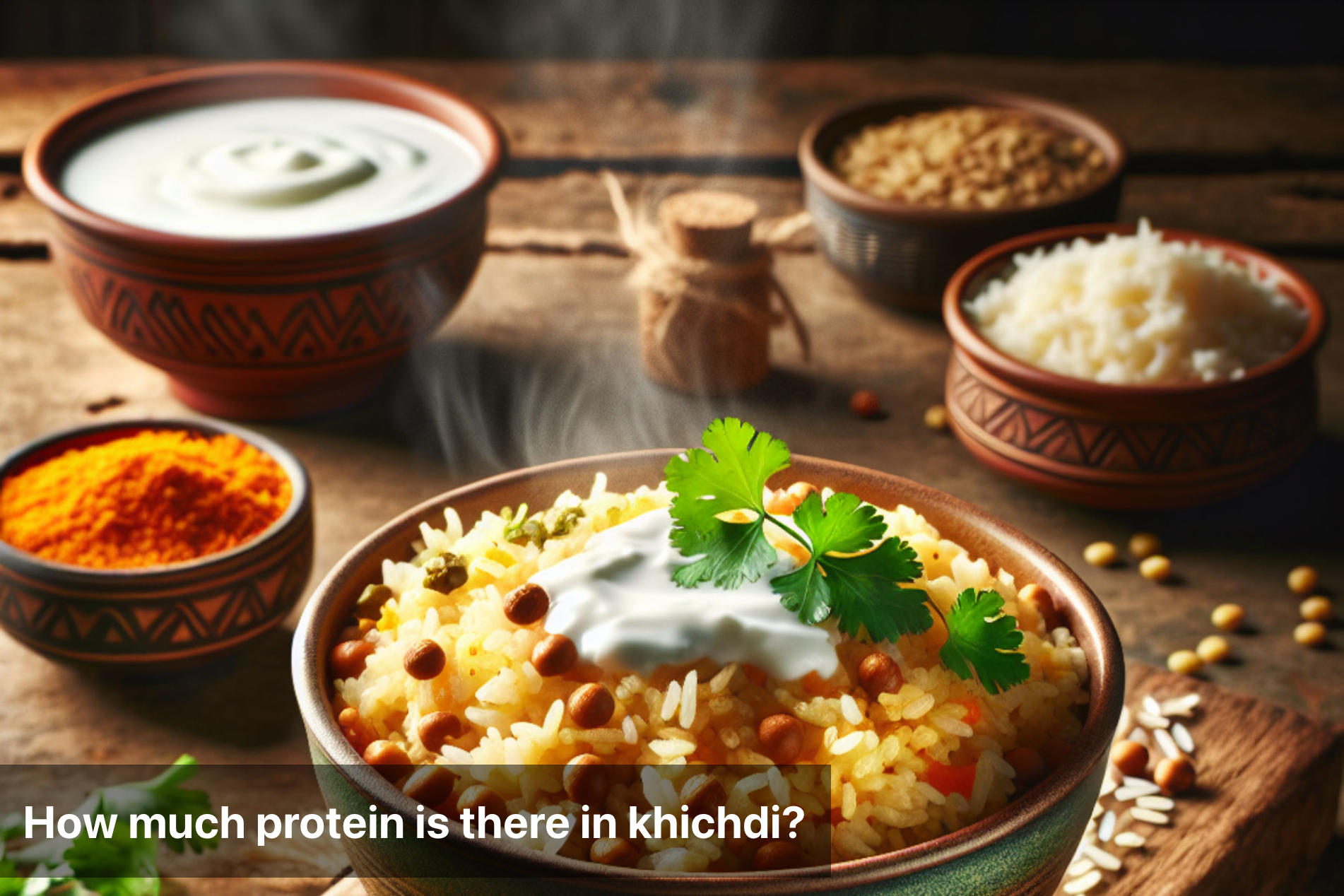
How much protein is there in khichdi?
Khichdi, a quintessential Indian comfort food, is a wholesome dish made with a combination of rice and lentils. It holds a significant place in Indian cuisine for its simplicity, versatility, and nourishing qualities. This traditional meal dates back centuries and is deeply rooted in Indian culinary history.
The basic ingredients of khichdi include rice, lentils (such as moong dal), ghee, and a blend of aromatic spices like cumin, turmeric, and asafoetida. This harmonious mix not only creates a delicious flavor profile but also offers a balanced nutritional composition.
Khichdi is cherished for its ease of preparation, making it a go-to meal for times when comfort and sustenance are needed. Its gentle nature on the stomach and digestibility make it a popular choice during illness or as a simple yet hearty everyday dish.
The beauty of khichdi lies in its ability to be customized with various vegetables, herbs, or spices, adding depth and variety to the dish while enhancing its nutritional value. Whether enjoyed on its own or paired with accompaniments like yogurt, pickles, or papad, khichdi remains a beloved part of Indian households, symbolizing warmth, simplicity, and nourishment.

Nutritional Profile of Khichdi
Total Fat |
4.6 g |
Sodium |
163 mg |
Potassium |
564 mg |
Total Carbohydrates |
55 g |
Dietary Fibre |
15 g |
Sugars |
3.9 g |
Protein |
15 g |
Vitamin A |
6% of the daily requirement |
Vitamin C |
4.5% of the daily requirement |
Calcium |
5.1% of the daily requirement |
Iron |
23% of the daily requirement |
Total Khichdi Calories (260 g) |
320 kcal |
Easy Khichdi recipe at home
Ingredients:
1 cup rice
1/2 cup split yellow lentils (moong dal)
1 small onion, finely chopped
1 small tomato, chopped
1 small potato, diced (optional)
1 teaspoon cumin seeds
1 teaspoon grated ginger
2-3 cloves garlic, minced
1 green chili, finely chopped (adjust to taste)
1/2 teaspoon turmeric powder
Instructions:
Rinse the rice and lentils together until the water runs clear. Soak them in water for about 30 minutes, then drain.
Heat ghee or oil in a pressure cooker or pot over medium heat. Add cumin seeds and let them splutter.
Add chopped onions, grated ginger, minced garlic, and chopped green chili. Sauté until onions turn translucent.
Add chopped tomatoes and cook until they soften.
Add diced potatoes (if using), turmeric powder, and salt. Stir well to combine.
Add drained rice and lentils to the pot. Mix everything together.
Pour in enough water to cover the rice-lentil mixture (about 3 cups). Adjust salt if needed.
Close the pressure cooker lid or cover the pot with a lid. Cook on medium heat for about 2 whistles in the pressure cooker or simmer for 20-25 minutes on the stovetop until rice and lentils are cooked and soft.
Once cooked, let the pressure release naturally or carefully release it manually.
Garnish with fresh cilantro leaves and serve hot with yogurt, pickle, or your favorite chutney.
Health Benefits of Khichdi
Nutrient-Rich: Khichdi combines rice and lentils, providing a balanced source of carbohydrates and proteins, essential for energy and muscle repair.
Easily Digestible: The simple ingredients and gentle spices in khichdi make it easy on the digestive system, making it a popular choice during illness or recovery periods.
Balances Doshas: In Ayurveda, khichdi is considered a tridoshic food, meaning it balances all three doshas (Vata, Pitta, and Kapha) in the body, promoting overall health and well-being.
Rich in Fiber: The combination of rice and lentils provides a good amount of dietary fiber, which aids in digestion, regulates bowel movements, and promotes gut health.
Low Glycemic Index: The complex carbohydrates in khichdi have a low glycemic index, meaning they release energy slowly, helping to stabilize blood sugar levels and providing sustained energy.

Quantifying Protein Levels in Khichdi
The protein content in khichdi plays a significant role in enhancing its nutritional profile and overall health benefits. Throughout this blog, we have delved into the essence of khichdi as a wholesome dish enriched with vital nutrients, particularly proteins.
Khichdi, a cherished comfort food in Indian cuisine, combines the goodness of rice and lentils to offer a balanced source of essential amino acids and plant-based proteins. By incorporating khichdi into your diet, you can enjoy a complete protein source that aids in muscle repair, growth, and overall well-being.
Considering its high protein content, khichdi serves as a versatile meal that can be customized with various spices, vegetables, and garnishes to suit individual preferences. Whether consumed as a standalone dish or paired with nutritious sides, khichdi stands out as a nourishing option for individuals seeking a protein-rich meal.
To reap the benefits of protein in khichdi, it is recommended to balance it with a variety of other food groups, such as leafy greens, dairy products, and fruits, to ensure a well-rounded diet. Embracing khichdi as a part of your regular meal rotation can contribute significantly to meeting your protein needs and promoting a healthier lifestyle.
This Blog post is an initiative by Lo! Foods, to provide accurate and Nutritionist / Doctor approved information related to Health. Lo! Foods is India's leading brand for Everyday Functional Foods. Foods designed for specific Health conditions or Needs. Lo! Foods also runs India's largest range of Low Carb Healthy Cloud Kitchens, under the brand names of Lo!, ProteinChef, ATH (All Things Healthy) and DiabeSmart.















Leave a comment
Your email address will not be published.